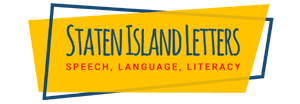All speech and language therapy and evaluation services take place at your Manhattan, Brooklyn, Queens, Long Island Nassau & Suffolk), Westchester, New Jersey, or Connecticut home or nursing facility etc. Yes, we travel to you!
Please note that these are out-of-pocket services. You could be eligible for out-of-network benefits. Please contact your insurance company if you need an in-network provider.
Brooklyn Letters offers an array of evaluation and treatment services to adults who have speech, language, cognitive, neurological, and voice challenges. Some of these underlying difficulties may be developmental in nature, such as having a foreign accent or articulation issues, or may have been caused by a stroke, traumatic brain injury, disease, or other neurological condition. See below to learn more about our speech language services for adults. At Brooklyn Letters, we customize each therapy session to your specific needs and our ultimate goal is to help you maximize your communication skills.

